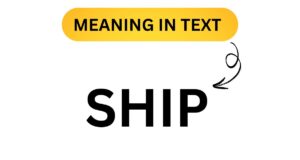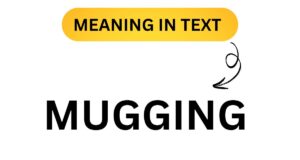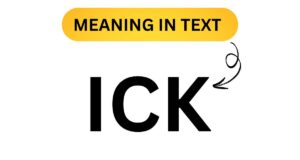The Definitive Guide to Understanding Teen Slang: Decoding the Language of Adolescents is your ultimate key to unlocking the fast-evolving world of teen speak. If you’ve ever felt out of the loop when your teenager drops phrases you don’t understand, you’re not alone. Teen slang is constantly changing, and it can be tricky to keep up with all the new expressions popping up.
But don’t worry this guide is here to help you decode it all! Whether you’re a parent, educator, or just curious, you’ll discover the meaning behind those mysterious words, giving you the confidence to connect better and stay in the know.
Why Do Teens Have Their Own Slang?
Before we start breaking down all the cool new words and phrases, you might be wondering: Why do teens even need their own slang? Well, let’s face it language is all about identity, and teens are all about establishing their independence.
It’s like a secret handshake that only the cool kids know. Plus, when you’re a teenager, it feels really important to have your own language that your parents and other adults just don’t get. It’s a way to signal to each other, “Hey, we’re part of the same tribe,” and let’s be real teenagers love being in on something that feels exclusive.
But here’s the thing: Teen slang isn’t static. It evolves faster than you can say “yeet,” which means yesterday’s lingo is often replaced with something new tomorrow. So if you’re still using “rad” or “groovy” in casual conversation well, it’s time to step up your slang game.
The Basics: Common Teen Slang You Need to Know
Ready to learn what those teens are saying? Here’s a crash course in some of the most popular slang words you’ll encounter.
1. “Cap” and “No Cap”
Let’s start with something simple. “Cap” and “no cap” are everywhere these days. But what do they actually mean?
- “Cap” means a lie or something that’s not true.
- “No cap” means no lie, or to be completely honest.
So, if someone says, “I’m the best at basketball, no cap,” they’re basically saying, “I’m telling the truth, I’m seriously the best.” But if they say, “That’s cap,” they’re calling out someone for lying.
It’s like that time your friend said they saw a UFO, and you were like, “No way, that’s cap!”
2. “Sus”
This one is straight from the gaming world, and it’s all over TikTok. “Sus” is short for “suspicious.” So, if your friend is acting a little weird, you might say, “You’re acting kinda sus.” It’s basically calling someone out for being shady or untrustworthy.
Example: “You didn’t even offer to share your fries? That’s sus.”
3. “Lit”
If you haven’t heard of “lit,” are you living under a rock? It means something is exciting, fun, or just plain amazing. A party? Lit. A concert? Lit. A new song that just dropped? Also lit.
Example: “That movie last night was so lit. I’m still thinking about it!”
4. “Bet”
“Bet” is a multi-purpose word that can mean “okay,” “sure,” or “I’ll accept that challenge.” It’s like saying, “I’m in” or “I got you.”
Example: “You think you can beat me in Mario Kart? Bet.”
5. “Ghosting”
Ah, ghosting. This one has been around for a while and it’s definitely not a friendly term. When someone “ghosts” you, it means they’re completely ignoring your texts, calls, or messages without any explanation. It’s like they vanished into thin air—poof, gone.
Example: “I thought we were having a great convo, and then he just ghosted me. Rude.”
6. “Slay”
If someone is “slaying,” they’re absolutely owning whatever they’re doing, whether it’s their outfit, their dance moves, or their grades. It’s a compliment, and it’s a way of saying, “You’re killing it.”
Example: “Did you see Jane’s performance? She totally slayed that song!”
7. “Flex”
To “flex” is to show off, usually in a subtle (or not-so-subtle) way. It’s like bragging, but with style.
Example: “Did you see his new shoes? He’s always flexing.”
8. “Vibe” and “Vibing”
If someone’s “vibing,” it means they’re feeling the mood or energy of a situation—either good or bad. “Vibes” are the overall atmosphere or feeling. For example, if you’re at a party and the music is bumping, you might say, “This party’s got such good vibes.” Or if you’re feeling chill, you could say, “I’m just vibing today.”
Real-Life Scenarios: Teen Slang in Action
Now that we’ve covered some of the most common terms, let’s see them in action. Imagine you’re walking through the mall with your teen, and they’re chatting with their friends.
Teen 1: “Yo, did you see the new sneakers I got? They’re fire.”
Teen 2: “They are so lit. You’re flexing hard, bro.”
Teen 3: “I love those. Honestly, I was just vibing on the idea of getting the same ones, but now I have to. Bet.”
If you’re reading this, you’re probably wondering, “What did I just hear?” Don’t worry—it’ll make sense soon enough. To translate: Teen 1 is bragging about their new sneakers, Teen 2 thinks they’re awesome, and Teen 3 is agreeing that they’ll buy the same pair. Simple, right?
Is There Such a Thing as “Old Person” Slang?
Let’s be honest—every generation has its own slang. But there’s one thing that every teen will tell you about the slang used by older generations: It’s outdated. If you walk up to a group of teens and say something like “groovy” or “rad,” you’ll probably get some raised eyebrows.
Teens have their own version of cool, and the words you grew up with just don’t cut it anymore. So if you’re caught using phrases like “totally tubular” or “far out,” be prepared for some confused looks. It’s like trying to wear bell-bottom jeans in 2025. Not happening.
Common Misconceptions About Teen Slang
You might think you’ve got it all figured out by now, but there are some common misconceptions about teen slang that need to be cleared up.
Misconception #1: Slang is just random words.
Actually, there’s often a logic behind it! For instance, “sus” comes from the game Among Us, and “yeet” is an exaggerated expression of excitement or force. These words have a purpose, even if they don’t always seem logical at first.
Misconception #2: Teen slang is just for teens.
Actually, many of these terms are becoming mainstream, thanks to social media and internet culture. So don’t be surprised if you hear adults dropping “lit” or “bet” in casual conversation. Teens are influencers in more ways than one.
Misconception #3: Teen slang will die out quickly.
Sure, some words come and go, but many of them stick around longer than you think. Words like “lit” and “sus” are still going strong, and they’re likely to stick around for a while.
Conclusion
Now that you’re practically fluent in teen slang, it’s time to use it to your advantage. Whether you’re trying to connect with your kids or just want to impress your teenage niece, understanding their language can make all the difference. Just remember, slang is always evolving, so don’t be afraid to ask questions or even get a little bit curious.









